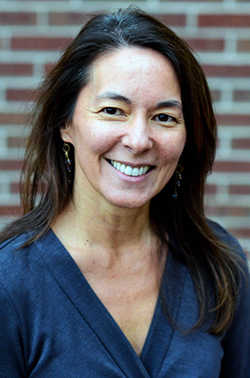Gun Violence: What are we to do?
By Shale Wong, MD, MSPH
 (November 2019) In the United States, a gun is used to kill a person every 14 minutes. This means 100 people every day die from gunfire including four children under the age of 17. We’ve experienced more than 250 mass shootings in 2019. Most
recently, 31 lives were lost in two separate tragic events in El Paso and Dayton just 13 hours apart. With statistics like these and the frequency of media reports, there is a growing normalcy to this violence that is numbing. We defend ourselves
from the sheer horror and also turn our backs feeling incapacitated to respond.
(November 2019) In the United States, a gun is used to kill a person every 14 minutes. This means 100 people every day die from gunfire including four children under the age of 17. We’ve experienced more than 250 mass shootings in 2019. Most
recently, 31 lives were lost in two separate tragic events in El Paso and Dayton just 13 hours apart. With statistics like these and the frequency of media reports, there is a growing normalcy to this violence that is numbing. We defend ourselves
from the sheer horror and also turn our backs feeling incapacitated to respond.
But as health professionals, the action of turning away defeats the oath that we have taken to heal and do no harm. While perhaps understandable that an event occurring outside our own neighborhood is beyond our reach for immediate response, we have too frequently been the first responders and we are the community who stands at the ready for the next horrific event. And there will be a next event, especially if we are passively waiting and steadying ourselves rather than taking steps to prevent another tragedy.
I, for one, have grown tired from the tears, nausea, and nightmares I experienced after Newtown, as well as the anger and utter frustration at the lack of Congressional action in the wake of every subsequent tragic event. Rather than malaise, I am fueled with motivation to do everything that can be done to change this course of events. I am a pediatrician, a policy researcher, and physician advocate. I am a mom, a mentor, and a neighbor. And I am not alone, for there is much to be done.
Earlier this year, the Farley Health Policy Center published a policy brief, Protecting Colorado Youth from Gun Violence, focusing on the protection of our youth through strengthening gun safety legislation. The brief articulates Colorado’s gun
violence problems and solutions within the broader national context. Our brief does not argue for an individual policy change but rather advocates for a package of policies that present imminently doable actions to be taken at the state level that
together will increase safety and decrease deaths without impacting lawful gun ownership.
In the simplest of terms, there are many policy options available, each intended to achieve different, impactful outcomes. Banning assault weapons and eliminating sales of bump stocks that weaponize guns into high capacity firearms are methods of decreasing the potential and potency of mass shootings. Background checks are intended to monitor and limit gun possession from those who may be deemed unsafe to responsibly handle a lethal weapon, thus decreasing suicide and homicide—risk to self or others. Safe storage laws protect curious children from accidental injury and adolescents from high-risk or impulsive behavior, and in each case, potential deaths.
Discussing these potential solutions with policy makers, community leaders, and other decision-makers is just one way to face gun violence head on. It offers an entry point to collaboration and an opportunity to inform and take action.
The Farley Center is positioned on the Anschutz Medical Campus to translate and help researchers bring their data and evidence into actionable steps and to influence policy development. We drill down and analyze data to understand the impact of current policies and better understand the disparities across populations that are a result of structural and systemic inequities. Our mission is to inform evidence-based policy development that promotes integrated care to achieve whole health—physical, behavioral, and social. Urgent issues require timely, thoughtful, and impactful action. We are eager to organize and support campus-wide efforts to lead policy and systems reform. Firearm research and policy is but one social issue that we prioritize.
Gun violence is only worsening with daily inaction. As health professionals, together we are stronger when we channel the science and our experience into workable, evidence-based solutions. It is our collective professional and community responsibility
to act.
Shale Wong, MD, MSPH, professor of pediatrics and family medicine, is the director of the Eugene S. Farley, Jr. Health Policy Center and serves as the vice chair for policy and advocacy in the department of pediatrics.